
August 9 2023
4 min read

Jun
Project management has emerged as a rewarding career with increasing opportunities. Project managers and project coordinators are in high demand across industries. Both roles form the pillars of project management. However, there are a few distinct differences you need to understand. This article will cover the significant differences between a project coordinator and a project manager and help you choose the right career path.
Project managers often have an umbrella leadership role. Based on the nature of the project, they might oversee project coordinators while closely working with them. While there are distinct differences, both perform similar tasks, only on a different scale.
The table below presents the main differences between project managers and project coordinators.
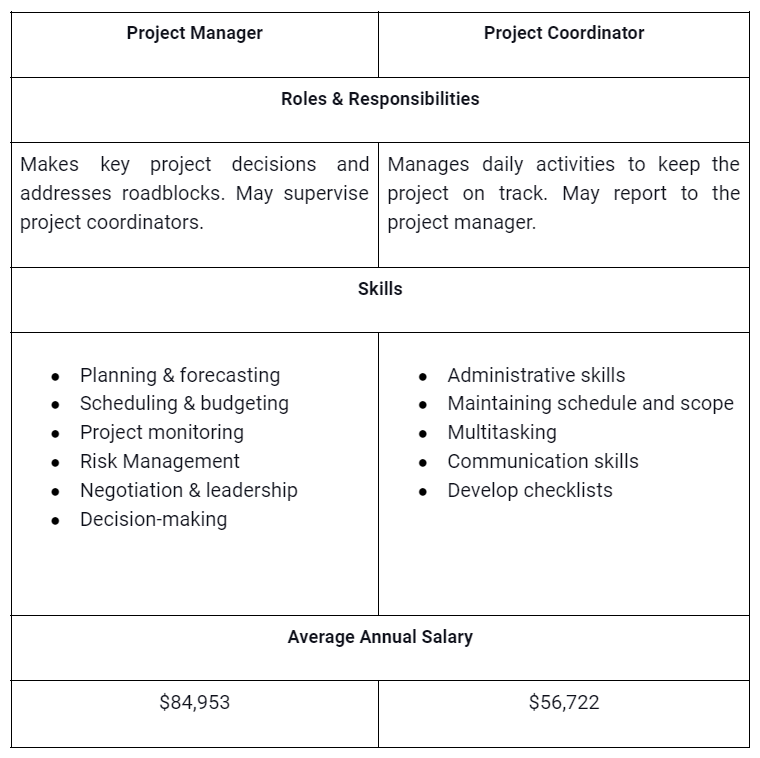
A project manager is the brain and driving force behind every project. They ensure the team members stick to the project’s scope, timelines, and budgets from start to end. Project managers spearhead teams and ensure the deliverables are in line with the expectations of their higher-ups (upper management, CEO, founders, etc.) and stakeholders. They determine the project parameters and work closely with project coordinators to manage scope, budget, timelines, and resources.
Project coordinators are the support systems of a project. They are mainly assigned administrative tasks and must ensure the teams are aligned with the project goals. Project coordinators track every phase of a project’s lifecycle while relaying relevant information to the respective stakeholders.
Here are the key roles and responsibilities of a project manager:
Finalizing project goals with upper management, clients, and key stakeholders
Linking projects to organizational strategic goals
Identifying project benefits and planning the realization of benefits
Leading and managing the project team
Engaging with stakeholders and managing their expectations
Listing down project requirements, e.g., materials and supplies required
Developing detailed project plans
Delegating key tasks to expedite project execution
Evaluating project costs and determining timelines
Keeping supervisors and stakeholders in the loop with project updates
Closely working with risk management teams to predict project hazards and keep the team prepared
The project coordinator executes the project plan when the project manager is done planning and resource mapping. Here’s how:
Placing orders for new resources (e.g., materials and supplies)
Keeping tabs on project financials such as budget details
Closely working with finance experts and finding ways to reduce expenses
Tracking project changes for short- and long-term goals
Managing project calendars
Helping the project manager coordinate between team members and stakeholders
Training new employees and bringing them up to speed with other project members
Coordinating with HR teams to document policies
Regular documentation and paperwork to maintain project repositories
Scheduling and organizing meetings, workshops, and project reviews
The Project Management Institute considers the PMI triangle to be the benchmark for all the skill sets a project manager must possess. To aid project management professionals in navigating the world of work and adopting smarter ways of working, they have recently updated the sides of the PMI triangle to now focus on:
Ways of working: Formerly Technical Project Management
Power skills: formerly Leadership
Business acumen: formerly Strategic and Business Management
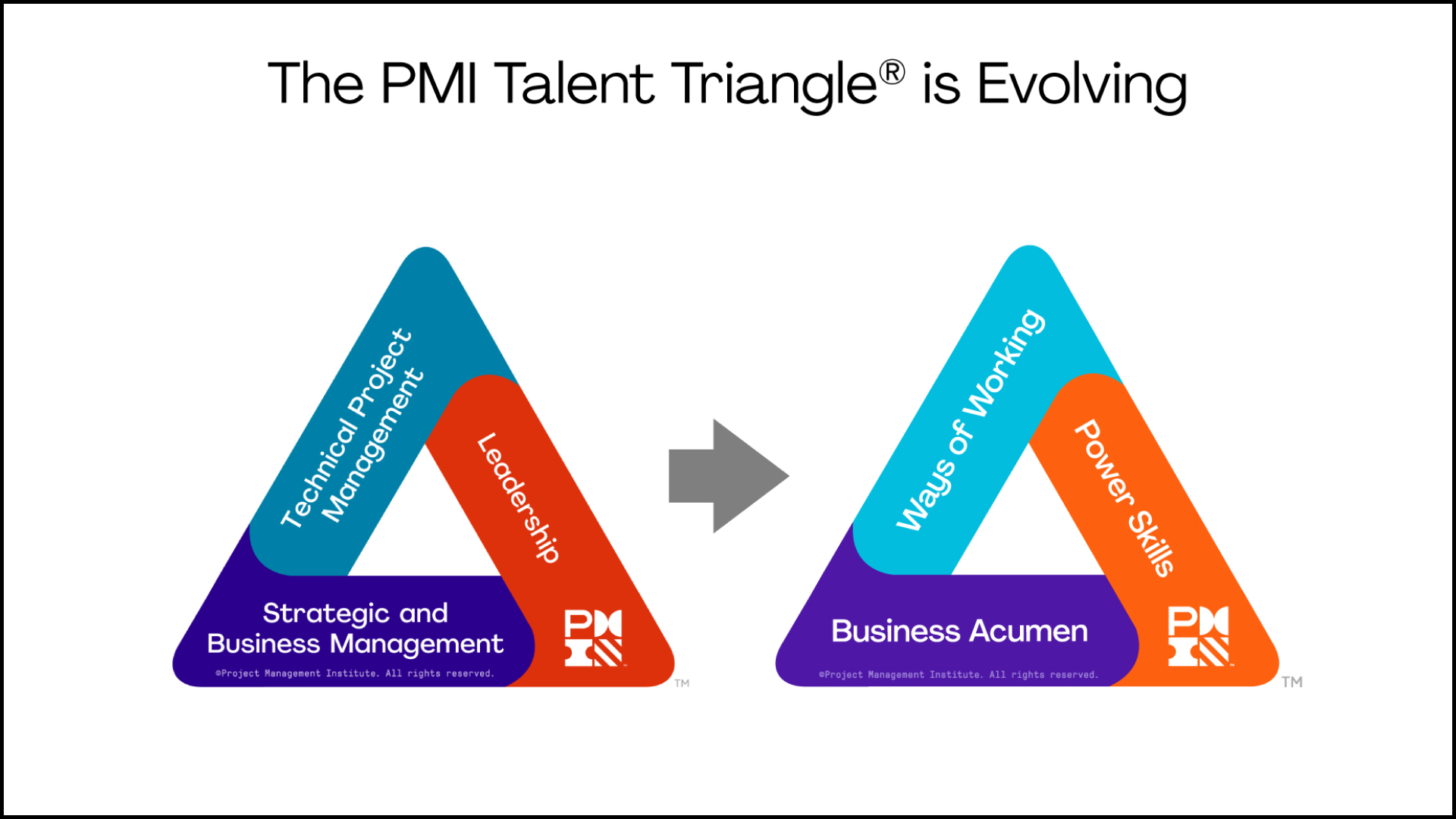
Project managers translate project ideas into reality. Managing people, processes, and resources requires the following skills.
Planning, organizing, and forecasting: A project manager must have a clear picture of the roadmap before a project begins. In order to plan and forecast effectively, project managers need to have a deep understanding of the project’s long- and short-term goals.
Understanding of project management methodologies: Knowledge and experience of different methodologies make you better equipped to determine the right fit for each project.
Monitoring and tracking: As a project manager, you must keep close tabs on milestones, deliverables, and timelines. It is equally important to be wary of the risks associated with the project so you can take action as and when they arise.
Facilitation skills: The key to becoming a successful project manager is your ability to facilitate meetings. You also need to master skills like active listening, time management, and conflict resolution to be a good facilitator.
Project scheduling & budgeting: Effectively creating and managing a project schedule has a lot to do with the success of the project. You should be proficient with top project management software (e.g., JIRA) to save your organization valuable time and money. You need to manage project finances effectively and ascertain you don’t exceed the budget limit at any point.
Risk management: As a project manager, you are expected to detect, assess, and minimize risks that could impact project results. Effective risk management ascertains that your project runs successfully and delivers the expected results.
Choose from a variety of risk management tools that are the right fit for your project.
Team and task management: A good project manager uses the right tools and allocates tasks to his team members based on their skills. Team management software such as ClickUp is useful in channeling team effort in the right direction. Being familiar with project management techniques such as Agile or Scrum helps you manage tasks seamlessly.
Communication skills: Excellent communication skills help share information and solve critical issues. The better you communicate, the easier it becomes for your team members to understand what’s expected of them and deliver quality output.
Leadership skills: Excellent leadership skills are necessary to communicate the project vision to stakeholders and resolve potential conflicts.
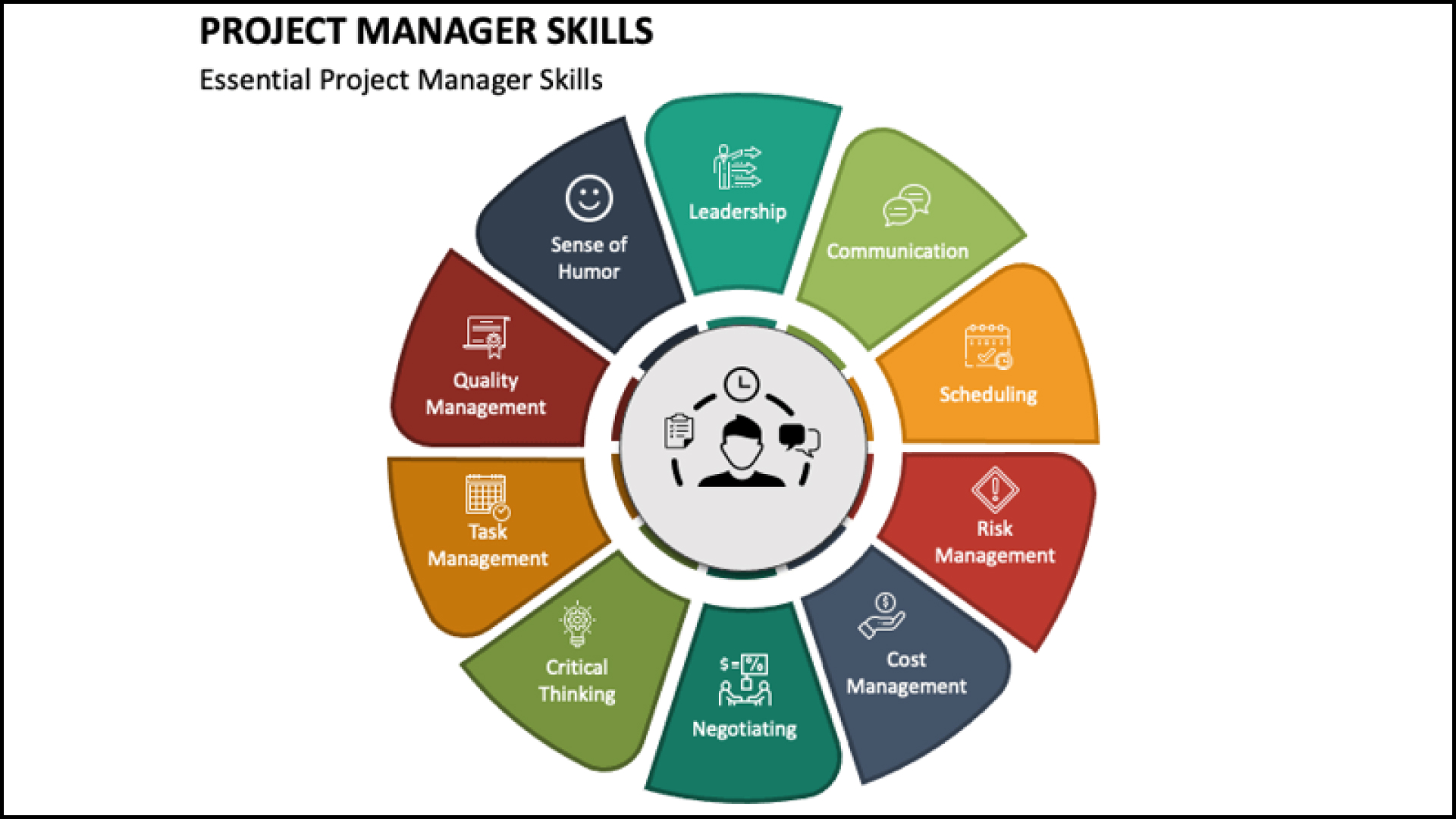
Project coordinators are required to master the following skills:
Excellent communication: Having good communication skills will help you discuss problems openly while listening to the opinions and feedback of key team members.
Develop checklists: Project coordinators must create checklists that map team members to their essential tasks and timelines. These checklists help you determine the action items to move the project forward.
Time management: As a project coordinator, you must also ensure team members have enough time to complete their tasks, talk about progress reports, have problem-solving sessions, and more.
Multitasking: All tasks and modules in a project are interrelated. Being a multitasker guarantees that you can switch between tasks without getting distracted.
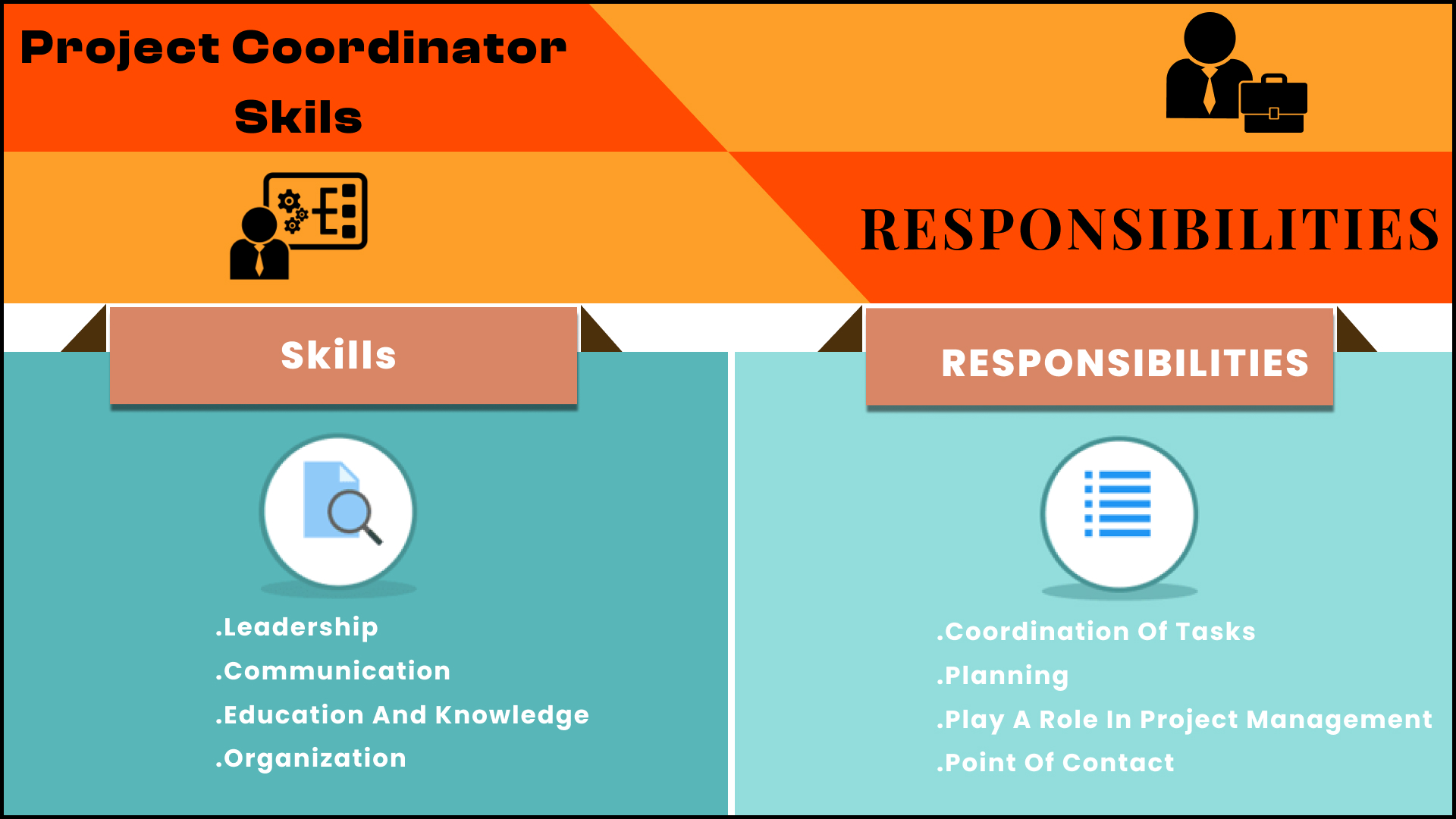
The average annual salary of a project manager is $ 74,000. However, there are multiple factors determining the salary of a project manager. Let’s take a look:
Experience & role: Project managers with 1-4 years of industry experience earn about $74,000 per year. The average annual salary of project managers with 10-19 years of experience is a whopping $85,000.
Company type and size: Here is a list of project manager salaries in top companies:
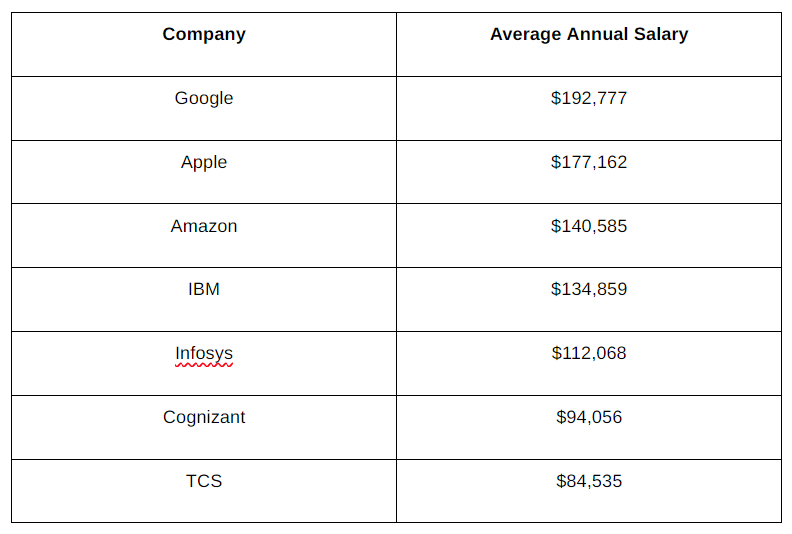
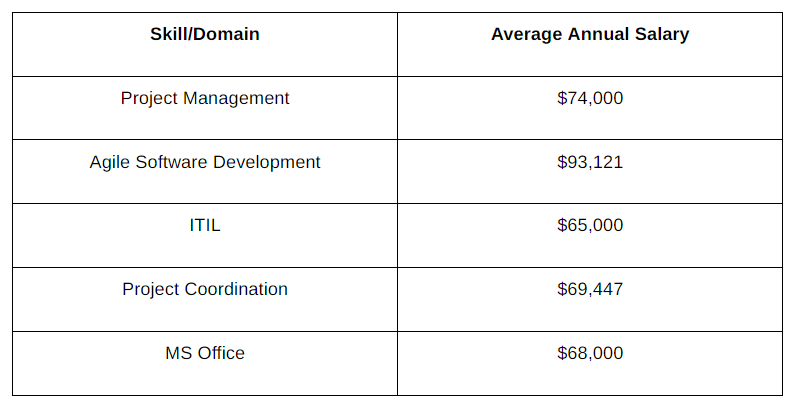
Certifications: Certified project managers always have a competitive edge over their peers. For example, being PMP-certified allows project managers to earn 22% more than their non-certified peers. A project management certification also guarantees promotion and progress in the same job.
Location: The city or country where your job is based has a significant role in your salary as a project manager. The following table explains further:
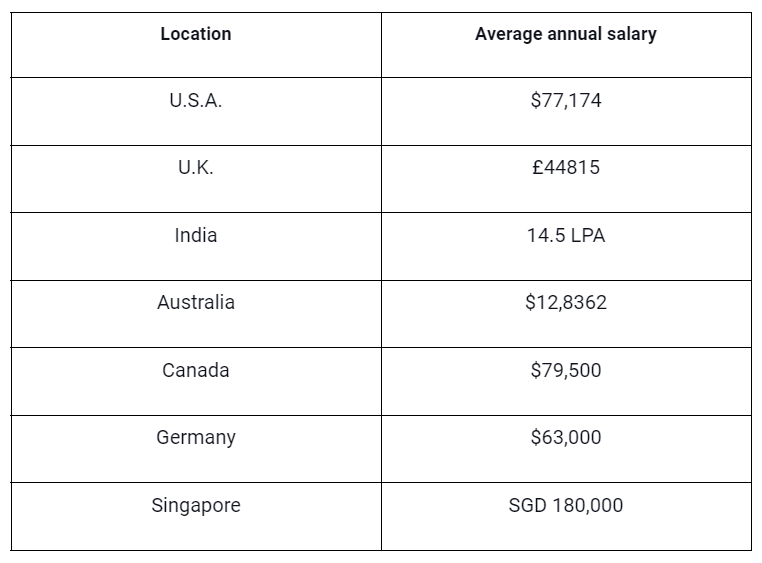
Let’s take a look at the salaries of project coordinators across the world:
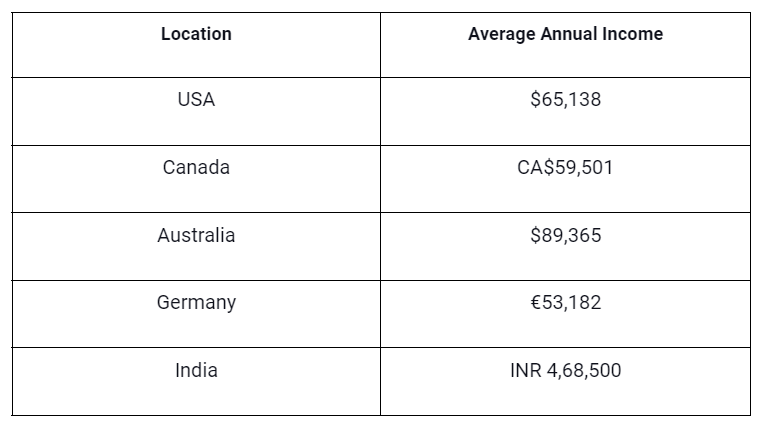
Becoming a project coordinator or a project manager is all about your skills and career choices. Over the years, Edbrick has trained project management professionals to become highly skilled project managers and coordinators. Enrol in our expert-led project management programs and land your next high-paying job.
All set to gear up in your career? Register for our courses today.

August 9 2023
4 min read

July 18 2023
6 min read

June 19 2023
8 min read

June 12 2023
5 min read